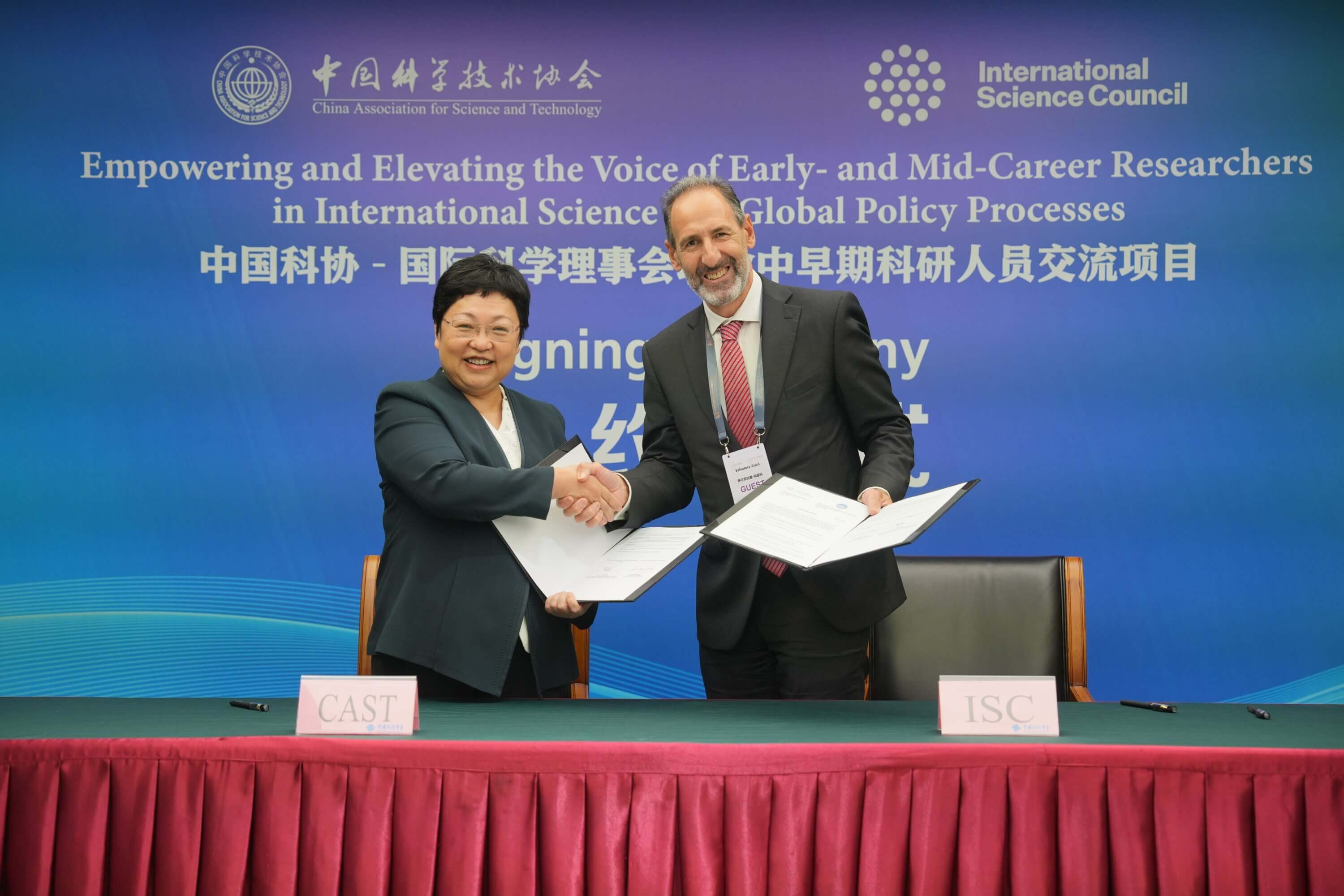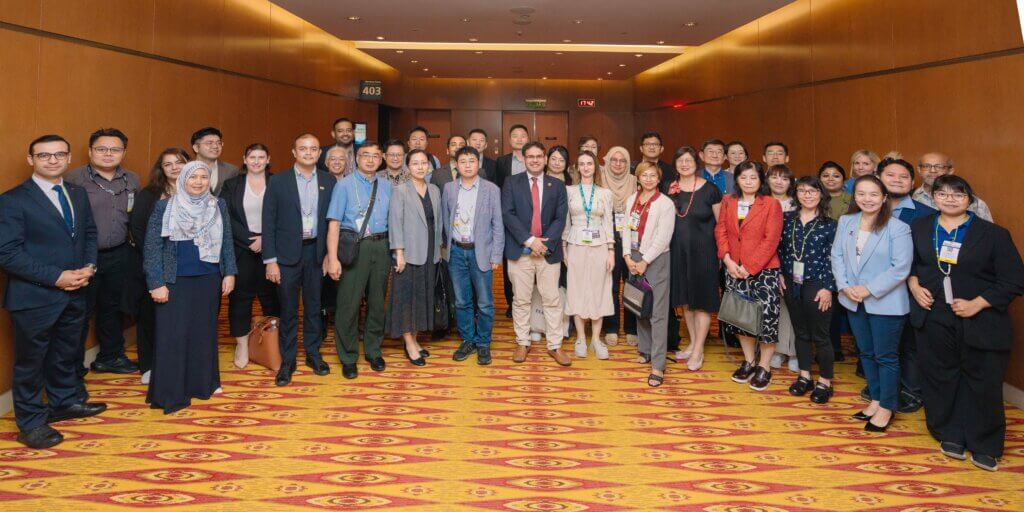
This two-year initiative, supported by ISC Member the China Association for Science and Technology (CAST), aims to amplify the voices of Early- and Mid-Career Researchers (EMCRs) worldwide, with a special emphasis on those in low- and middle-income countries. It will equip these researchers with the skills and opportunities necessary to shape the future of international science and play key roles in addressing the world’s most pressing challenges.
The project underscores the critical importance of engaging young researchers in global science and policy dialogues, particularly on pivotal issues such as planetary sustainability, climate resilience, and science diplomacy. Through leadership training, scientific collaboration, and direct engagement in global policy processes, this initiative aims to expand the perspectives, knowledge, and influence of a diverse group of young scientists.
In today’s rapidly evolving world, it is crucial that we elevate the voices of emerging scientific leaders who bring fresh perspectives and innovative solutions to the table. Science systems thrive when they are inclusive, and through this partnership with the China Association for Science and Technology, we are ensuring that EMCRs—particularly those from underrepresented regions—can shape global science solutions and influence policy on critical issues like planetary sustainability. By empowering these voices, we enhance the potential for transformative change.
Read ISC CEO, Salvatore Aricò’s full address at the World Science and Technology Development Forum (WSTDF 2024) organized by ISC Member, the China Association for Science and Technology (CAST).
The involvement of Early- and Mid-Career Researchers (EMCRs) is essential for developing science systems that are not only equitable but also capable of addressing the immense sustainability challenges facing humanity today. By providing platforms for young researchers to engage in international scientific exchanges, this project directly supports the United Nations’ Sustainable Development Goals (SDGs) and the recent Summit of the Future’s Pact for the Future. In particular, Action 28 encourages Member States and civil society “to seize opportunities presented by science, technology, and innovation for the benefit of people and the planet.”
Through a series of workshops, conferences, and knowledge-sharing initiatives, the ISC EMCR project will facilitate scientific exchanges for talented EMCRs, fostering solidarity within the scientific community and encouraging a new generation to tackle complex global challenges through collaborative and innovative scientific cooperation.
The EMCR project aims to strengthen exchanges and partnerships among young researchers at national, regional and global levels so that an ecosystem of win-win cooperation and resource sharing among them can be gradually fostered. This will help boost their voice in the global scientific arena in the long run.
Dr. Luo Hui, Executive Secretary of CAST and Director General of the Department of International Affairs of CAST.
Key activities of the project include science leadership training modules, a podcast exploring the future skills that young scientists will need, and residencies at leading Chinese and international research institutions. EMCRs will also have opportunities to participate in major global scientific events, such as the ISC’s General Assembly in Oman, ensuring that their perspectives and expertise are heard on the global stage.
In order to find the solutions to the grand challenges humanity faces today, science needs to be more inclusive, diversified and accessible. Young scientists are the future of innovation and scientific progress. Supporting young scientists is crucial for the advancements of science and technology. The ISC EMCR project is a right step at the right time in outlining the need for comprehensive support systems to empower young scientists and to ensure they contribute meaningfully to global science.
Prof. Chandra Shekhar Sharma, Executive Committee Co-Chair of the Global Young Academy
Researchers in their early and middle-career stages are imaginative, energetic and cooperative. International collaboration will encourage their transdisciplinary research to tackle global challenges.
Prof. Baojing Gu, Professor of Sustainability at the Zhejiang University College of Environmental & Resource Sciences and Frontiers Planet Prize International Champion, 2023
The ISC EMCR project will kick off in November 2024 during the World Young Scientist Summit (WYSS), organized by the World Association for Young Scientists (WAYS) and supported by CAST and ISC. The ISC will co-organize two sessions dedicated to EMCRs: Scientific Leadership and International Engagement of Young Scientists and Regional Scientific Collaboration in Asia and the Pacific. These events will provide a space for exchange, learning, and collaboration among young members of the ISC and the wider EMCR community. They will also enable young scientists to coordinate their efforts, strengthening their voice and representation in the international scientific community. Additionally, the sessions will feature a presentation on the ISC Regional Focal Point for Asia and the Pacific and its activities in the region.
 blog
blog
 blog
blog
Image courtesy of CAST, featuring Dr. Luo Hui, Executive Secretary of CAST and Director General of the Department of International Affairs (on the left), and Dr. Salvatore Aricò, ISC CEO (on the right).
Disclaimer
The information, opinions and recommendations presented in our guest blogs are those of the individual contributors, and do not necessarily reflect the values and beliefs of the International Science Council